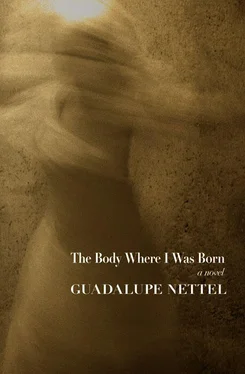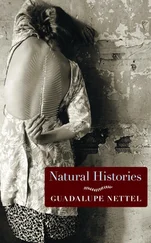Like me, Blaise didn’t talk a lot about his father. He idolized the man and at the same time felt an incurable resentment toward him for his absence and separate life in Paris. From the bitterness that crept into his smile whenever he described supposedly happy vacations, I gathered they were as false as my own. I, who came to know Blaise very well, avoided asking about his father, but many of our classmates were fans of his father’s work and would often inquire, at which point Blaise would proudly report the latest news on his father’s books, prizes, and translations that had come out in recent months. Blaise didn’t have any problem talking to people, nor did he harbor any prejudices against the North Africans as did many of the Franco-French students at our school. The affluent kids didn’t intimidate him, either. He was a free spirit that way, and I guess that’s why people found him so easy to be around. For me, his friendship was a gateway to meeting people I probably never would have met on my own. Such was the case with a mysterious-looking girl. Her name was Sophie Roy and we met her during the winter, shortly after it was announced that The Cure were coming to Marseille. Blaise was into the band and one afternoon when we were walking together, he went up to the black-clad girl to ask if she’d heard about the concert and if she knew the exact date. Based on her physique, as much as the look on her face, Sophie seemed much older than the rest of us. It was rumored — and it was true — that she’d previously been expelled from two private schools, and that her tenure at Jas de Bouffan was the last chance her parents were giving her before having her committed. Every day she showed up at school dressed entirely in black, in antique high-quality clothing. Instead of a coat or jacket, she wore a cape like Arthur Rimbaud, whose work we were studying that year in French Language and Literature. Underneath it, she wore an extremely tight skirt that clung to her silhouette, which was rather chubby and boasted curves that looked like they were about to burst out of the fabric. And she wore a button-down sweater, tight around her enormous breasts. Her blond and curly hair was always pulled into a chignon at the nape of her neck. Her eyes were large and pale blue, and she lined them with black kohl and a heavy coat of mascara. Her features and limbs were round and a little coarse, like those of a peasant woman or the baker from French fairy tales. There was something porcine about her extremely pug nose, which according to my brother looked like an electrical socket. A visible scar running down the length of Sophie’s cheek cast doubt on the innocence of her face. Still, the general impression she gave was that of a sexy and disturbingly peculiar girl. In spite of the prejudices that a nerd such as myself could have against a girl of her appearance, Sophie was neither a cruel nor ill-intentioned person. From the start she was really friendly with us and even suggested that we go see The Cure with her and a group of friends she was gathering, friends from a different school because she didn’t have any at Jas. The concert was three months away, so it cost nothing to accept the invitation and to keep hanging out in the meantime. It was in that moment, at lunchtime, that Blaise and I began to form a trio with the girl in black. Her presence never felt like an intrusion to us; on the contrary, her way of being made us feel included. Even though she lived in Éguilles, she almost never rode the school bus that took kids back to their towns, but would use public transportation to go downtown after class to spend a few hours with a former classmate of hers. When it would start to get dark, she’d take a city bus from the gare routière . Unlike the other girls in my class, she never judged the way I dressed, which the others considered old fashioned and unattractive. Instead, Sophie enthusiastically approved of my difference. On my way home from school one afternoon, I came across her leaning against the back gate I always went through as a shortcut.
“What are you doing here?” I asked, intrigued.
“I’m cutting class. You?”
“Going home.”
Then she asked a question that terrified me and I didn’t know how to react: “Can I come over?” she said.
I never brought people to our apartment and avoided mentioning the neighborhood we lived in as much as possible, since hearing its name immediately made most people suspicious. I tried to get out of it, but she wouldn’t let me.
“Are you embarrassed of your house or your family?” she asked me bluntly.
Instead of answering the question, I tried to dodge it:
“It’s a very dangerous neighborhood. Have you heard of Les Hippocampes?” I said, slowly pronouncing the name of the place as if it were a magic spell, knowing there wasn’t anybody who hadn’t read about it in the papers.
“You live there?” she cried. “Why didn’t you say so! I’ve been wanting to go to that neighborhood for years, but I’ve never known anyone there.”
I had no choice but to bring Sophie home with me. But the neighborhood didn’t live up to her expectations. She had imagined a much darker and more forbidding place. Naturally, she complained about the smell of disinfectant and said it was disrespectful to force it on us. When we went into the apartment, Sunil was brewing a vanilla tea he’d just brought back from his island, and Sophie questioned him about all of his customs, including the caste system, things which my brother and I had observed but tactfully never asked about. With his newly acquired communist ideology, Sunil was delighted to answer her questions. The conversation became passionate but was cut off suddenly when my mom came in. With a stern face and as much friendliness as she could muster in that moment, Mom threw the intruder out and sent me to take a bath.
“I had a good time at your house,” Sophie said to me the next morning, outside at recess. “Too bad your mom is so jealous.”
Little by little, I realized that my friendship with Sophie was gaining me respect from the other students. I must have had something — something that no one had discovered yet — for this girl who was so much more mature and more wealthy than all the rest of us to have chosen me out of everybody. Suddenly they all wanted to find out what it was. I went downtown with her a few times, but I never had the chance to meet her other friends. Where I did get to go with her — and this I considered a huge demonstration of her trust in me — was on one of her visits to the doctor who managed — I found this out that same afternoon without any kind of preface or introduction — her detoxification therapy. It was the first time I saw her bare arms, covered in scars and needle tracks. I also heard her weight and blood pressure, and finally her age: thirteen. Same as me. For six months of her life, she went to that place every week and had to answer the same questions.
When we left the doctor’s office that afternoon, we sat down in a quiet little square to have a coffee like the university students did. She told me briefly about how she had spent the summer in Aix living with an eighteen-year-old boy named Adam, but had to break up with him when she decided to quit and get clean once and for all. She never talked about it again. Nor did she tell me what the scar on her face was from. I, in turn, talked about Sebastien, whom I continued to dream about in secret, and the mortifying letter incident. Compared to her story, mine was embarrassingly childish, but she still listened to it with the same seriousness and respect with which I had listened. The visit sealed our friendship — a friendship marked by a large number of differences, but for that our few similarities became stronger. What were they? First and foremost we were outsiders, and we both had several uncomfortable secrets that couldn’t be shared. We were both going through a tough time. But I was wrong to think these similarities and the tacit complicity between us also implied loyalty or some kind of commitment. This I would figure out later, not that afternoon, nor in the following days which I passed under the happy illusion of having found a true friend.
Читать дальше












